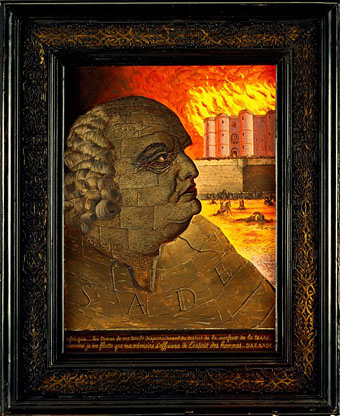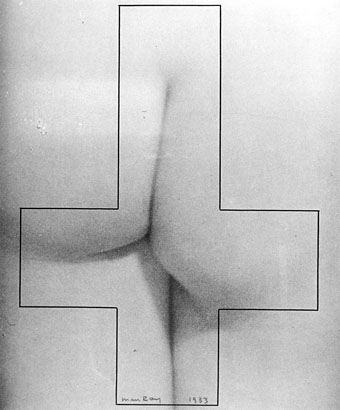
Monument to D.A.F. de Sade (1933).
A slight return to the literary outlaw. Man Ray was more preoccupied by the Marquis de Sade than many of his fellow Surrealists, although he never took his interest as far as the obsessive Jean Benoît. His imaginary portraits were created after Sade scholar Maurice Heine complained that the only surviving picture of the Marquis was a drawing that could be of any other young aristocrat of the time.
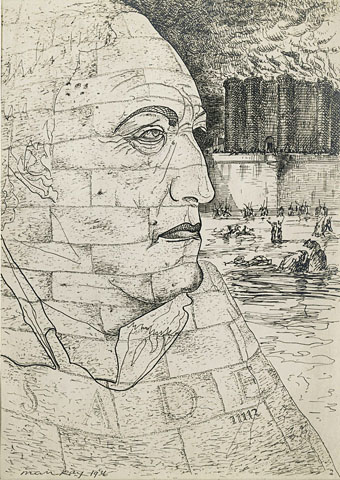
Imaginary Portrait of D.A.F. de Sade (1936).
Man Ray’s portraits ran through several variations, first as drawings, then as two paintings, finally as a bronze. These always seemed to me to be more representations of Sade’s character as it comes through his writing than portraits of the writer himself. The two paintings could easily depict the villainous Duke de Blangis from The 120 Days of Sodom, with the castle of the Bastille standing for the castle where Blangis and his colleagues conduct their murderous games. An earlier photo work, Monument to D.A.F. de Sade (1933), was used by Mary Reynolds in a metal binding she created in 1935 for the first print edition of the 120 Days. Penguin used the same photo on the cover of their new translation of the book in 2016. And it would be remiss of me if I didn’t mention the gay variation designed by Peter Christopherson for the CD release of Scatology by Coil.
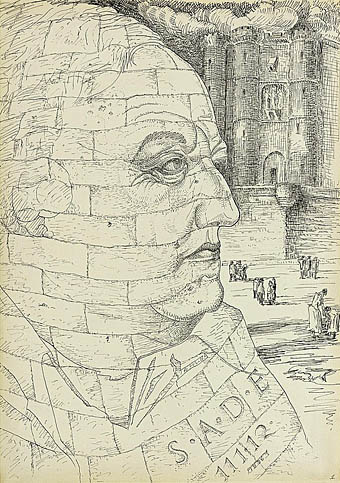
Imaginary Portrait of D.A.F. de Sade (1936).
Imaginary Portrait of D.A.F. de Sade (1938).
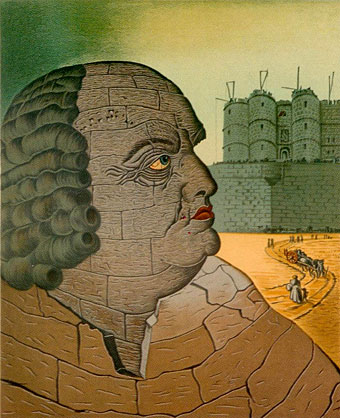
Imaginary Portrait of D.A.F. de Sade (1938).
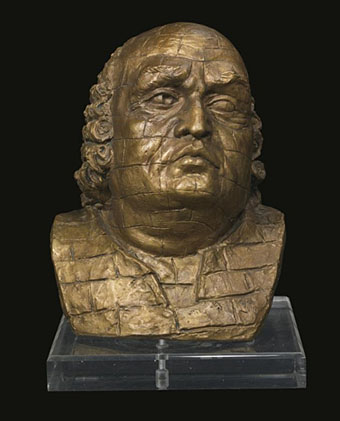
Imaginary Portrait of D.A.F. de Sade (1971).
Previously on { feuilleton }
• Sympathy for the devil
• Satan’s Saint
• The Execution of the Testament of the Marquis de Sade by Jean Benoît
• The Marat/Sade

